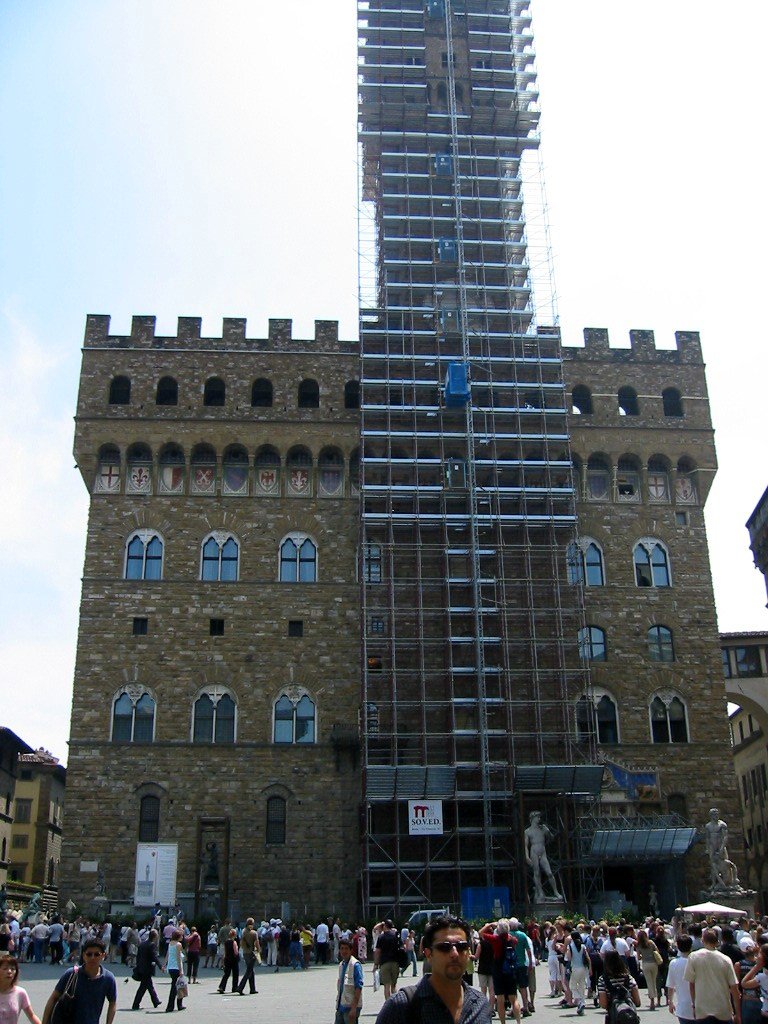
Palazzo Vecchio
The Palazzo Vecchio, located in the Piazza della Signoria, is a monument to the power of the Medici family and still serves as Florence's town hall. Completed by Arnolfo di Cambio in 1302, it was remodeled by Duke Cosimo I, who made it his palace in 1540. It became known as the Palazzo Vecchio (old palace) when the duke transferred his court to the Palazzo Pitti. The square-shaped exterior sports two large rows of windows with a central tower (currently under renovation) fronted by Cellini's Perseus and a copy of Michelangelo's David (photo to the left). Entrance to the Palazzo is gained through an inner courtyard decorated with frescoes and supported by Roman columns. (photo to the right). One flight up leads to the magnificent Salone dei Cinquecentro or assembly hall. Measuring 175 x 72 x 59 feet high, it was designed to accommodate the 500 men of the then (1490) Florentine Republic. A testimony to the triumph of the Medicis, the walls contain Vasari's murals depicting their victories over Siena and Pisa. Vasari also painted the ceiling with his Apotheosis of Cosimo. As if this self-congratulatory decoration was not enough, the outer boundaries of the room are lined with sculptures, foremost among them Michelangelo's Victory and Vincenzo dei Rossi's Labors of Hercules. The upper floors include apartments, notably the Sala dei Gigli, which houses Donatello's Judith and Holofernes. Perhaps most interesting is the Sala delle Carte (map room) with its huge globe and leather maps depicting the world known to Florentines in 1563.